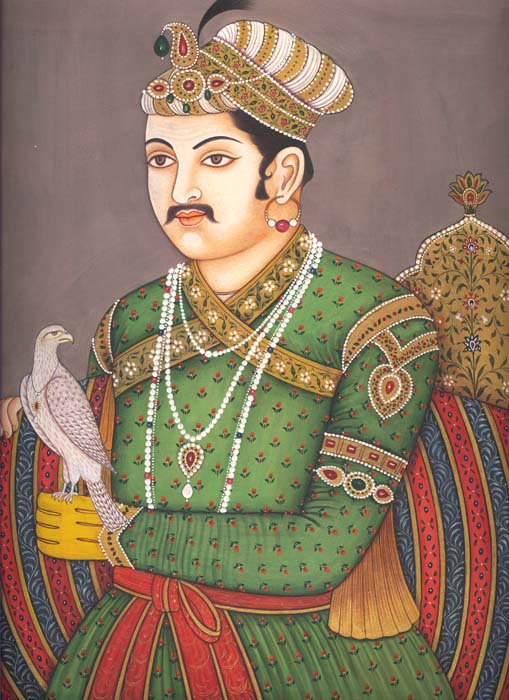Linkman226
#anarchy
- Joined
- Sep 14, 2007
- Messages
- 2,493
What do you call that hat I see so often on Mughal leaders? Does it have a name?

Spoiler :


Just because a ritual was created by a human wouldn't mean it isn't in some way transcendental . . .
Sure, if you accept that human to be divinely inspired, a prophet. And it would make sense if neopagans either believe their faiths to be actual continuations of ancient faiths or founded by a modern prophet. I don't get the feeling that's true though (mainly because I can't imagine anyone thinking Gerald Gardner's a divinely inspired prophet).
What do you call that hat I see so often on Mughal leaders? Does it have a name?
Spoiler :
You mean other then the fact that they were all attempts to break the same parliamentary deadlock?
They did so because it was impossible to find a palatable coalition with the rise of the NSDAP. No one wanted Hitler in government, and the KPD and the SPD weren't speaking to each other. Even if they were they'd have to pull in the Zentrum and at least one other party. All the far right parties together made 41%. Even the dreaded "coalition of the extremes" a combination of the NSDAP and the KPD would have a bare minimum to form a government. With the inability of the reichstag to form a coalition, von Papen and Schleicher both attempted to rule in the interim, and tried to keep that interim as long as possible, because the alternative would have to let either the NSDAP or the KPD into government. Eventually Hitler put together a coalition, which made their position untenable.I though von Papen and Scheilcher tried to rule without the reichstag?
There was some backroom dealings with Schleicher, von Papen and Hitler, I'll try to look up the details, as they were quite byzantine.And yes, aside from that.
Sure, if you accept that human to be divinely inspired, a prophet. And it would make sense if neopagans either believe their faiths to be actual continuations of ancient faiths or founded by a modern prophet. I don't get the feeling that's true though (mainly because I can't imagine anyone thinking Gerald Gardner's a divinely inspired prophet).
It's quite possible to religiously believe in something that isn't divine.
How does that work anyway? Isn't a core part of religion the access to some transcendental truth? That conducting the appropriate rituals and following the laws serve some purpose? If you admit that all that or most of that is made up by some random guy, aren't you just playing an elaborate game of make-believe?
xchen08 said:How does that work anyway? Isn't a core part of religion the access to some transcendental truth? That conducting the appropriate rituals and following the laws serve some purpose? If you admit that all that or most of that is made up by some random guy, aren't you just playing an elaborate game of make-believe?
That's like asking if the Democratic primaries in 2008 had an impact on John McCain's electability.I though von Papen and Scheilcher tried to rule without the reichstag?
And yes, aside from that.

That's like asking if the Democratic primaries in 2008 had an impact on John McCain's electability.
Brüning also notably ruled by decree ....
Hindenburg switched his affections to Papen, who made his famous ill-fated alliance, and, well, you know the rest.
Not inevitable, but increasingly likely as the various conservative authorities in Germany progressively exhausted their options while rating the Nazis as a lesser threat than either the Communists or the SPD.Thanks for the reply Dachs and ParkCunghee.
So basically, if anything, Hitler's appointment as Chancellor was inevitable when Muller stepped down and Brunning wrecked what was left of the economy and Papen and Schleicher just made everything worse.
Why is Haile Selassie of Ethiopia often referred to as Haile Selassie I, despite the fact that there has never been a Haile Selassie II?
